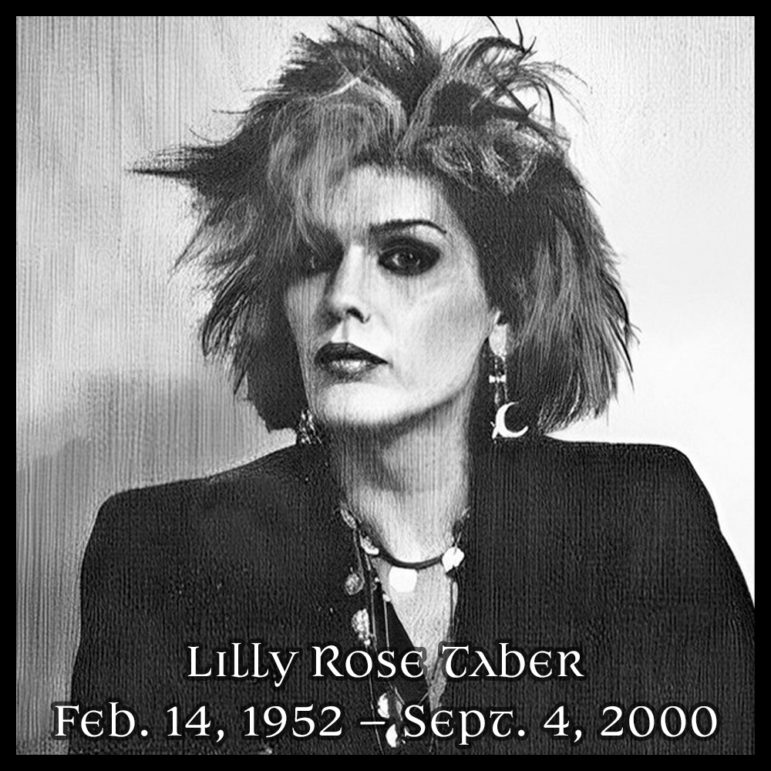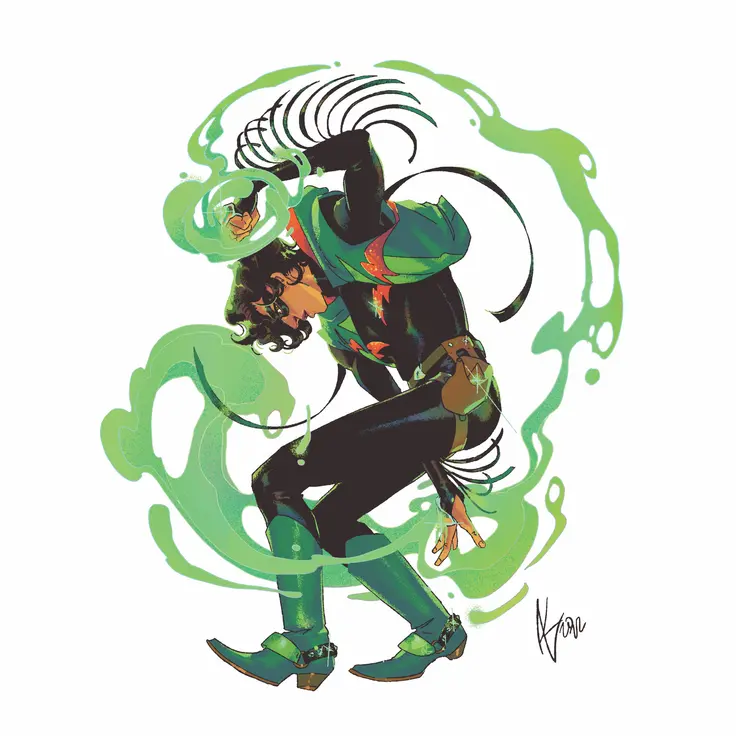
Each of us, whether we want to or not, looks to others to help us define our own sense of self. We compare and contrast ourselves with the people we meet and the people we see in movies and on TV. We see what they do and how they act in the world, and we form our own judgments and opinions, mostly from a very early age. This is especially true for anyone in a minority group, as we are often starved for representation. When we do see people like us, we are reminded that we are valid. We find strength in numbers.
As queer people, we often suffer more isolation than most, as we are a minority that is different even from our own biological families. For many of us, we may be the only queer person that we know of in our family. This makes for a greater need to establish families of choice, and chosen family is an integral part of queer culture. Even the word “family” has been a queer code word, a euphemism used by our community to identify another who is like us. “They’re family,” we say, meaning “they are one of us.”
To grow up in the closet is to feel out of place wherever one goes. To know, down deep inside, that you don’t exactly “fit in” and that if anyone were to realize the extent of your difference, they would reject you. We don’t have to grow up in the typical abusive family; messages from society are often abusive enough on their own. While I see much in the way of progress all around me compared to what I experienced growing up, I need look no further than the latest news reports to be reminded just how much farther we still must go. And that knowledge can be stressful and demoralizing, leaving us feeling drained and exhausted.
To help us through these difficult times, we will do as we have always done: we will turn to our communities, to our shared cultures and histories to give us a context for our struggles, and the knowledge that may nourish our spirits and help us to find that which fortifies us for our current battles and those yet to be fought. So, this month, let’s look at some queer news stories and figures from our history to help remind us of who we are and how far we have come.
The Rainbow Dead
It is important to remember those who have gone before us. The rights that we have today were hard won on the backs of so many amazing and brave queer folks who put their safety on the line to make a better world for us. We stand upon their shoulders, and for many of them, their names are not widely known. Let us begin this by honoring someone who we have recently lost, an unsung hero in the struggle for queer acceptance. Let us read his name among the Rainbow Dead.
To give a proper context it is important to know that in the United States, homosexuality was once considered to be a mental illness which allowed for some of the most invasive and barbaric medical “treatments” in pursuit of a “cure.” Electroshock therapy and even lobotomies were not uncommon. That began to change when, in 1973, Charles Silverstein (April 23, 1935 – January 30, 2023), then a graduate student working on his Ph.D., was one of a group of others who presented before the American Psychiatric Association (APA), arguing for them to remove homosexuality from their list of disorders.

Charles Silverstein (left) and his partner, William Bory. Courtesy Rutgers Oral History Archives
“Psychoanalysts believed that gay men were doomed to lives of depression and, eventually, suicide because of their shame,” Silverstein told the Windy City Times, a Chicago LGBTQ+ newspaper. “I argued that these men were not ashamed because they were homosexual but because of what these therapists were telling them.”
This was integral to the APA’s decision, ten months later, to update their Diagnostic and Statistical Manual (DSM-II) in which homosexuality was no longer classified as a mental disorder or “sexual deviation”, removing that particular stigma and paving the way for queer folks to gain greater access to a proverbial seat at the table.
Silverstein continued to be a queer activist and went on to write several books, including the popular The Joy of Gay Sex (1977) which offered the radical notion that gay sex should be joyful. It has since undergone two revisions, both adding new entries to the original material, including a discussion of safe sex in the wake of HIV/AIDS.
Ancestors of the Queer Craft
Another of the Rainbow Dead about whom you may or may not have heard is Lilly Rose Taber (Feb. 14, 1952 –Sept. 4, 2000). I recently posted about her Feast Day in the Queer Craft. She was a singer/songwriter as well as a costume designer and one-time roommate of the legendary Janis Joplin. She was also the first trans priestess in the Anderson Faery tradition. Her line of the tradition, Moonstone, is still active.
Lilly recorded several albums and singles from the 1970s through the ’90s, in numerous genres including punk, new wave, renaissance, jazz, and Pagan. She was a pioneer of Denver’s new wave/punk scene. Her bands included Jupiter Rey with Lilly Rose, Lilly Rose & the Thorns, The Amazing Lilly Rose Band, and Band W.O.W. For more about her music, click here.

Lilly Rose Taber.
Another queer practitioner of the Craft who has not received much public attention is Elijah Haydn “Lige” Clarke (February 22, 1942 – February 10, 1975). He was an American LGBT rights activist, journalist, and Witch. He was interviewed for Leo Louis Martello’s 1969 book, Weird Ways of Witchcraft, where he was described as a warlock.
In 1968, along with his partner Jack Nichols, Clarke created and wrote “The Homosexual Citizen,” a column for Screw magazine. This was the first regular LGBT-interest column printed in a non-LGBT publication. Building on its success, they went on to publish the first weekly national homosexual magazine, called Gay, the following year.
In the early 1960s, Clarke worked for the United States Department of Defense and held multiple security clearances. It has been speculated that this may have contributed to his murder in Veracruz, Mexico where he was shot. His murder remains unsolved.

Elijah Haydn
Queer News
Shifting gears for a moment, who would have thought that the freaking Pope would be one of the voices of positive change for queer people worldwide? Speaking on the subject of homosexual people being criminalized (in some cases with punishments including the death penalty) he made his thoughts clear:
“[The criminalization of homosexuality] is not right. Persons with homosexual tendencies are children of God. God loves them. God accompanies them … condemning a person like this is a sin. Criminalizing people with homosexual tendencies is an injustice.”
Now, before you send me hate mail, I’m not saying he or the Catholic church are our friends. They still claim that homosexual acts are a sin, which is at the heart of the social cancer that is homophobia. But we must admit that these words will carry weight with a significant number of people, and so this might be one of those special moments which nudges the course of human destiny toward greater inclusion. (Whatever. I’m an optimist at heart. Sue me.)
Pop Culture and Queer Liberation
Pop culture is a place in which the masses get exposed to things outside the mainstream. So when we see stories and characters that speak to queer experiences and lives, we should recognize their potential in helping the over culture embrace more diverse values. Something as simple as the inclusion of a gay, bi, or trans comic book character can be a powerful catalyst toward shaping a future in which people are naturally more accepting of people who are different than themselves, having been exposed to the ideas from media. And, perhaps more importantly, they give queer youth an opportunity to see themselves in a positive light.
This is why the political and religious right is so keen on targeting and demonizing the media: through the media, we can access different ideas. And through them be better informed as to the workings of the world and how different people live their lives. That information potentially undermines systems that rely on us fearing and hating each other. So, whether it’s a queer character, movie star, or professional athlete, these queer points within popular culture help steer us toward a more equal and empathic future.

DC Comics’ newest trans and non-binary superhero: Circuit Breaker. [DC Comics]
Oh, and finally for today: dicks are getting bigger. Yup. Over a period of 29 years, a 24% increase in the average length of an erection has been observed. (How do I get THAT job?) Actually, that one might be good or bad. I don’t know.
While there is plenty of anti-queer news out there right now, I think it’s necessary to periodically remind ourselves of what is good. We can all go find the scariest, most heart-wrenching news just with a simple Google search. (Believe me, had I wanted to focus on negative stories I literally had hundreds to choose from.) But in the face of all that hate, it is important to remind ourselves of what we love. We don’t serve anyone by burning out and becoming complacent. We need all of us moving forward. In this, self-care becomes community care. We’re all in this together.
The Wild Hunt is not responsible for links to external content.
To join a conversation on this post:
Visit our The Wild Hunt subreddit! Point your favorite browser to https://www.reddit.com/r/The_Wild_Hunt_News/, then click “JOIN”. Make sure to click the bell, too, to be notified of new articles posted to our subreddit.